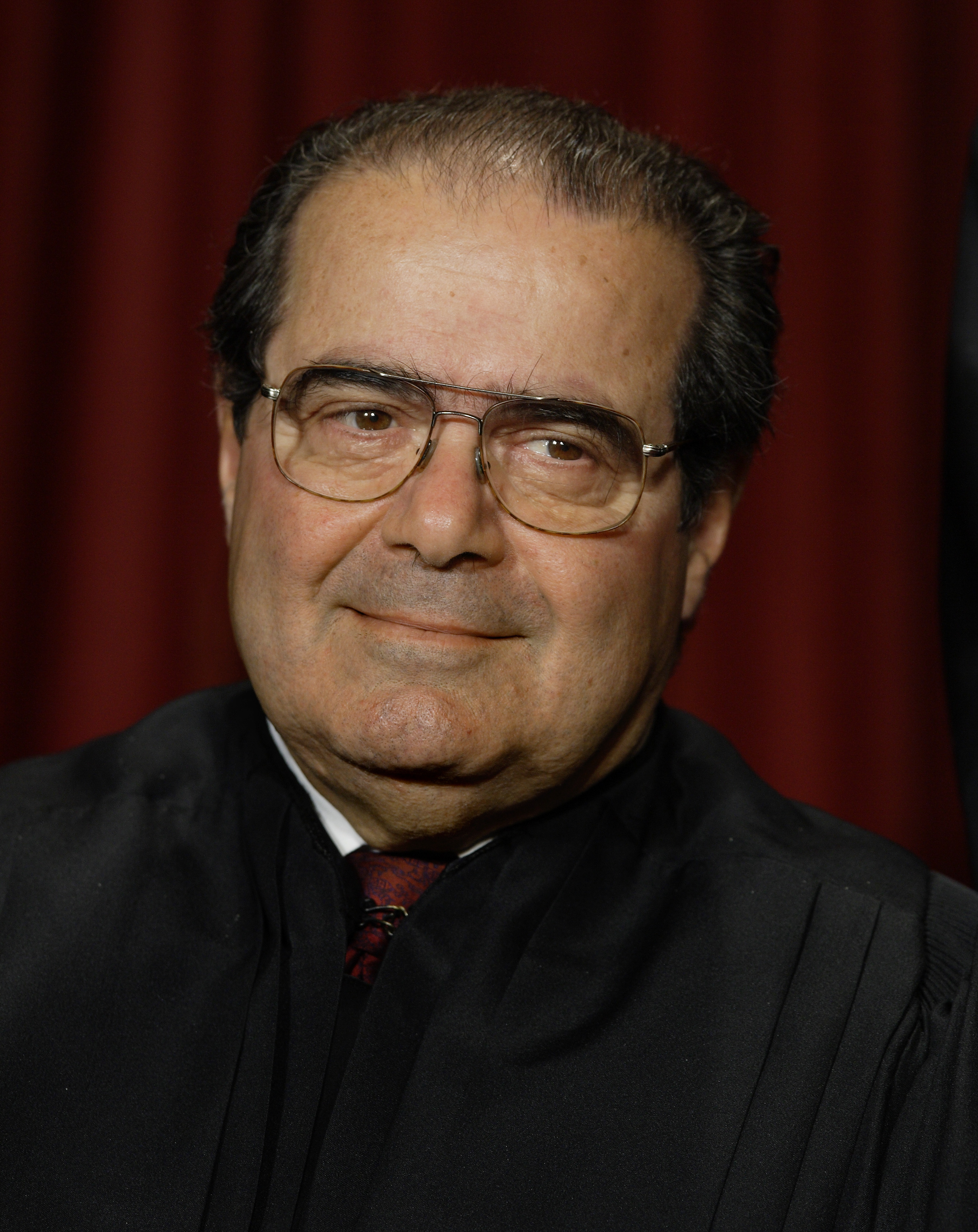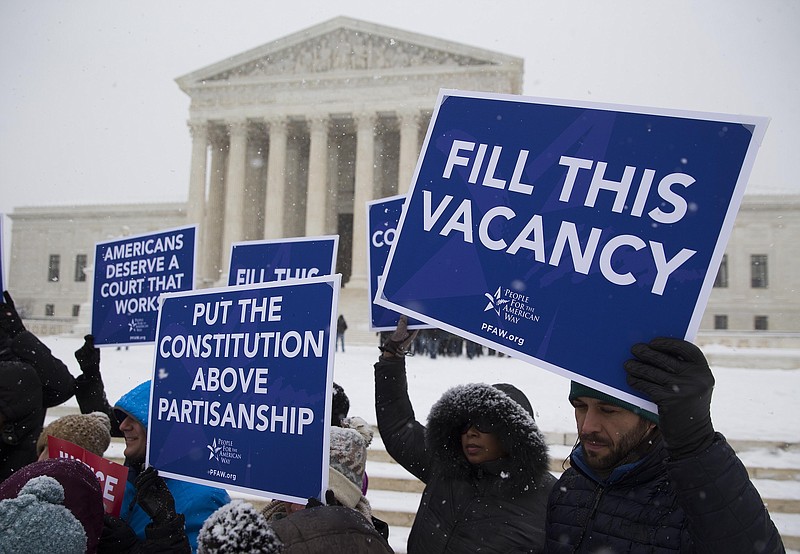Supreme Court Justice Antonin Scalia may be sitting on a cloud today snickering that we mortals are wondering what the "originalism" might have been in his dying thoughts over the weekend.
Scalia was a champion of originalism, the theory of constitutional interpretation that purports to apply the understanding of those who drafted and ratified the Constitution. He used that thinking to expand the right to bear arms from a state's "militia" to everybody.
 FILE - In this Monday, Oct. 31, 2005 file photo, Associate Justice Antonin Scalia joins the members of the Supreme Court for photos during a group portrait session, at the Supreme Court Building in Washington. On Saturday, Feb. 13, 2016, the U.S. Marshals Service confirmed that Scalia has died at the age of 79. (AP Photo/J. Scott Applewhite)
FILE - In this Monday, Oct. 31, 2005 file photo, Associate Justice Antonin Scalia joins the members of the Supreme Court for photos during a group portrait session, at the Supreme Court Building in Washington. On Saturday, Feb. 13, 2016, the U.S. Marshals Service confirmed that Scalia has died at the age of 79. (AP Photo/J. Scott Applewhite) Somewhat ironically, however, the 79-year-old jurist appointed in 1986 by President Ronald Reagan disdained that same kind of deep dive into the thinking of today's lawmakers in what is called "the use of legislative history" - statements from members of Congress about the meaning and purposes of laws - in the judicial interpretation of vague statutes.
Scalia's constant questioning - as well as his flamboyant writing style in both majority and dissenting court opinions - made him a leader in the groundswell of conservative contradictions: Everyone should have a right to carry a gun, but women have no right to make choices about motherhood. Those are but two examples of the very complicated Antonin Scalia.
President Barack Obama on Saturday called the late Scalia "an extraordinary judicial thinker." And that he was. He did not make his decisions lightly. Borrowing from his "legislative history" thinking, he wrote a scathing dissent from the court's majority upholding of the Affordable Care Act for the second time by accusing the majority of engaging in "interpretive jiggery-pokery.' He said the court went to such extraordinary lengths to save the ACA that "we should start calling this law SCOTUScare."
After honoring Scalia and his legacy, the president on Saturday night said he will "fulfill my constitutional responsibilities to nominate a successor in due time." He added that there's "plenty of time" for the Senate "to give that person a fair hearing and a timely vote."
Of course the president and the American people know this is waving a red cape in front of a bull - the bull Republicans determined to nix anything with Obama's fingerprint on it. This is especially true if it means another Obama Supreme Court nomination and one that would almost certainly shift the once 5-4 conservative ideology of the court to a 5-4 liberal ideology.
Noting that Obama has just under a year left in office, Majority Leader Mitch McConnell, R-Ky., and Senate Judiciary Committee Chairman Charles E. Grassley, R-Iowa, said Scalia should not be replaced until the next president has taken office, giving "the American people a voice." Several other conservative senators, including two running for president, have agreed with what is sounding like a de facto plan of filibuster.
Senate Minority Leader Harry M. Reid, D-Nev., rejected those positions. "Failing to fill this vacancy would be a shameful abdication of one of the Senate's most essential Constitutional responsibilities."
The Constitution gives the president the power to nominate justices of the Supreme Court "by and with the advice and consent of the Senate." While the Senate once largely rubber-stamped a president's choices, in modern years partisan politics have become the norm.
It took 166 days for the Senate to confirm Loretta Lynch as U.S. attorney general - one of the longest confirmation periods in U.S. history - despite the fact that Lynch's interview was largely flawless and the GOP had no real reservations about her.
Now Lynch is a much-talked-about name as Scalia's replacement - along with 48-year-old Sri Srinivasan, a lower federal court judge confirmed unanimously in 2013 and a former U.S. deputy solicitor general. He also served in the Bush Justice Department. Another is Chief Judge Merrick Garland, 63, who was reportedly considered for the first two vacancies Obama filled (which ended up going to Justice Sonia Sotomayor and Justice Elena Kagan). All three should have a chance of picking up at least some Republican votes.
What would Scalia think?
Seven years ago at a White House correspondents dinner shortly after Justice David Souter retired, Scalia sat at a table with David Axelrod, then-senior adviser to President Obama. Recalling the pleasant and fun dinner conversation, Axelrod said Scalia surprised him by saying, "I hope whoever your guy sends me - I know it won't be someone who lines up with me - but I hope you send us someone who's smart." Axelrod said he assured the justice it would be someone smart.
"He said, 'No, let me put a finer point on this. Send us Elena Kagan,'" Axelrod recalled to CNN.
Scalia ultimately got the liberal-leaning Kagan - former dean of the Harvard Law School and former solicitor general for the Obama Administration - not on that appointment, but on the next one. Additionally, the very conservative Scalia and the very liberal Ruth Bader Ginsburg called themselves "best buddies," and even vacationed together.
Thank goodness our Supreme Court justices are far smarter and far more fair-minded than most of our loud-mouthed senators.
